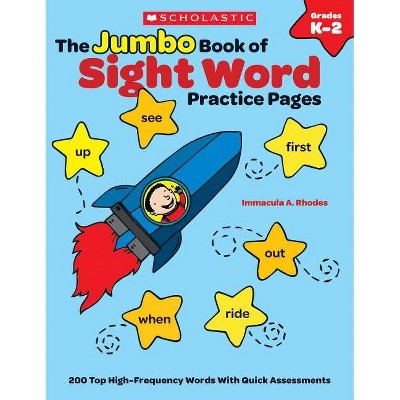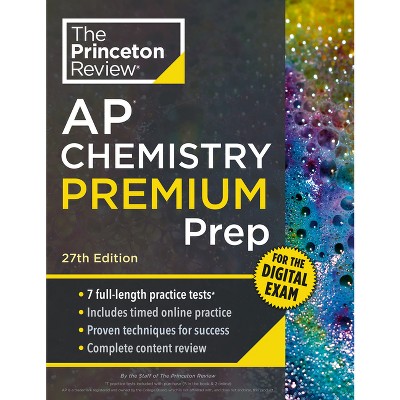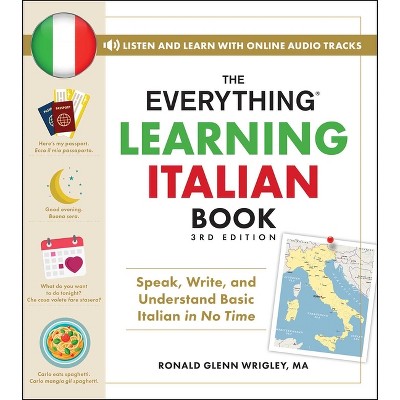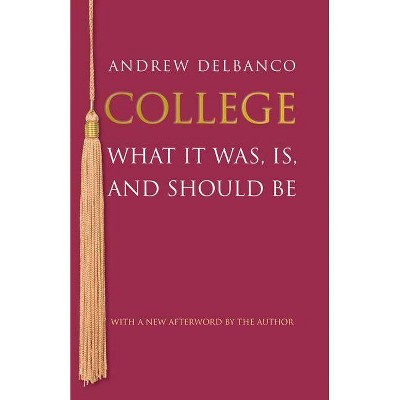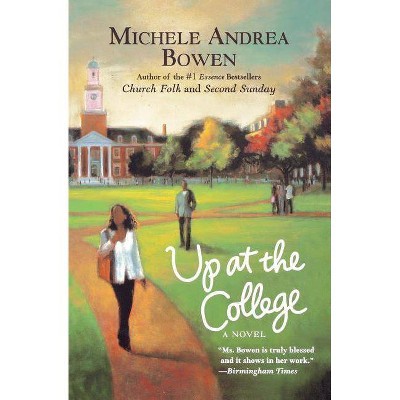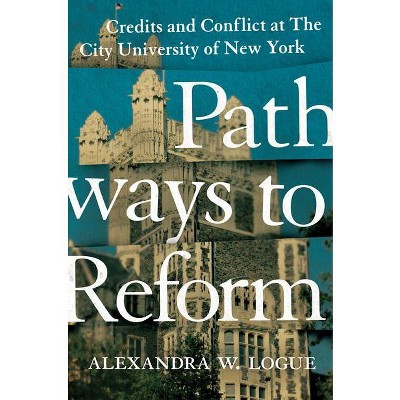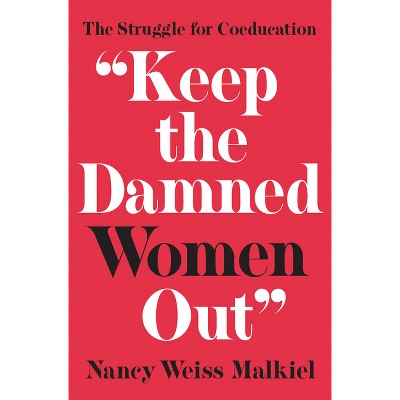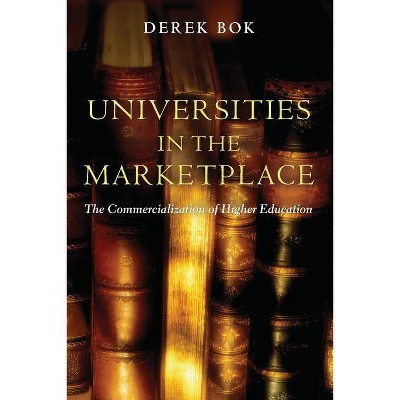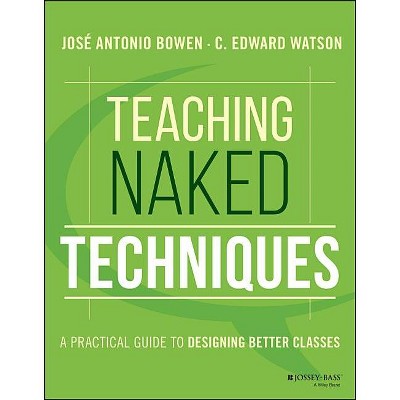Sponsored

College - (William G. Bowen) by Andrew Delbanco (Paperback)
$11.70Save $7.25 (38% off)
In Stock
Eligible for registries and wish lists
Sponsored
About this item
Highlights
- The strengths and failures of the American college, and why liberal education still matters As the commercialization of American higher education accelerates, more and more students are coming to college with the narrow aim of obtaining a preprofessional credential.
- About the Author: Andrew Delbanco is the Alexander Hamilton Professor of American Studies at Columbia University and president of the Teagle Foundation.
- 280 Pages
- Education, Higher
- Series Name: William G. Bowen
Description
Book Synopsis
The strengths and failures of the American college, and why liberal education still matters
As the commercialization of American higher education accelerates, more and more students are coming to college with the narrow aim of obtaining a preprofessional credential. The traditional four-year college experience--an exploratory time for students to discover their passions and test ideas and values with the help of teachers and peers--is in danger of becoming a thing of the past. In College, prominent cultural critic Andrew Delbanco offers a trenchant defense of such an education, and warns that it is becoming a privilege reserved for the relatively rich. In describing what a true college education should be, he demonstrates why making it available to as many young people as possible remains central to America's democratic promise. In a brisk and vivid historical narrative, Delbanco explains how the idea of college arose in the colonial period from the Puritan idea of the gathered church, how it struggled to survive in the nineteenth century in the shadow of the new research universities, and how, in the twentieth century, it slowly opened its doors to women, minorities, and students from low-income families. He describes the unique strengths of America's colleges in our era of globalization and, while recognizing the growing centrality of science, technology, and vocational subjects in the curriculum, he mounts a vigorous defense of a broadly humanistic education for all. Acknowledging the serious financial, intellectual, and ethical challenges that all colleges face today, Delbanco considers what is at stake in the urgent effort to protect these venerable institutions for future generations.Review Quotes
"College offers much valuable analysis, as when Delbanco lays out three common understandings of the purposes of college today. . . . [T]his fine-grained, literate argument for why teaching students 'how to think and how to choose' ought to be at the heart of a college education deserves careful thought and consideration, on and off campus."---Ben Wildavsky, Strategy Matters
"College: What It Was, Is, and Should Be gives a clear picture of all the forces, both within and outside the university, working against the liberal arts."---Joseph Epstein, Weekly Standard
"'Every year the teacher gets older while the students stay the same age.' This has always been true, but Delbanco's observation has a poignant weight today when college is always justified as being for something, whether for the economy, or for democracy, or for social mobility, and not as a place that exists as a community asking questions together, trying to unify knowledge to make sense of our lives--in short, as a place where we pursue the truth."---Angus Kennedy, Spiked Review of Books
"[College] will give a lot of pleasure to anyone who cares about undergraduate education. It offers a fascinating history of the creation and growth of US colleges and universities, some sombre reflections on the tension between the desire of many universities to be known as great research institutions and the needs of their undergraduates, and some angry thoughts about the way in which elite education reinforces economic inequality. . . . Delbanco writes with the exasperated energy of a radical assistant professor half his age, and displays an unforced affection for undergraduate students that is deeply engaging and permeates the book with an infectious optimism about the possibilities of liberal education in spite of all the obstacles that he lists."---Alan Ryan, Times Higher Education
"[An] eloquent book--a combination of jeremiad, elegy and call to arms."---Alan Cate, Cleveland Plain Dealer
"[I]nsightful and rewarding. . . . Delbanco's evocation of these nineteenth-century precedents is of central importance, for they allow him to demonstrate that liberal education, far from being an elite indulgence, is inseparable from our nation's most cherished and deeply rooted democratic precepts. In the face of today's hyper-accelerated, ultra-competitive global society, the preservation of opportunities for self-development and autonomous reflection is a value we underestimate at our peril."---Richard Wolin, The Nation
"[T]he book reaches its objectives. Its research base is impeccable, as is its expository form. It deserves a place in every college and university library, and not just in the U.S."---William Bruneau, CAUT Bulletin
"A lucid, fair, and well-informed account of the problems, and it offers a full-throated defense of the idea that you don't go to college just to get a job. Delbanco's brevity, wit, and curiosity about the past and its lessons for the present give his book a humanity all too rare in the literature on universities."---Anthony Grafton, New York Review of Books
"A thoughtful and insightful look at American college's exceptionalism and pitfalls. . . . Whether you're in college, thinking about college or just paying for it, it's a good read to help better understand one of America's oldest and finest institutions. And if we want it to stay that way, we all better get schooled about it."---Kacie Flynn, Vox Magazine, Missourian
"Andrew Delbanco does a marvelous job tracing the evolution of one of the most treasured institutions in the United States, 'college, ' in terms of the ideal of such an institution and the challenges it is facing. . . . Delbanco's book would be a great one for students and scholars in the fields of educational philosophy, history of education, educational policy, and other related fields. It would also be a good read for anyone who is interested in the development of higher education in the United States."---Shouping Hu, Teachers College Record
"Andrew Delbanco has given us a first rate account of the history and present state of the American college. . . . He comes across as a fine teacher, one of the best. I have recommended his classes, solely on the basis of this book, to a young man starting soon at Columbia. And I recommend this book to all who have been to any college or will go someday. This is a fine book."---Geoffrey M. Vaughan, Society
"Andrew Delbanco offers an eloquent and persuasive argument for the importance of a liberal arts education. At a time when others are challenging the so-called economic viability of a college diploma . . . Delbanco seeks to remind us of the enduring existential value of higher education; of its ability to enrich experience, deepen intellectual ability, and enhance one's own humanity."---Robin Tatu, Prism
"Andrew Delbanco's recent book is to be praised, for it reminds us that college should be about character formation and not a surrender to a customer service mentality that inflates accomplishments to please future employers, placate doting parents and repair fragile egos. . . . Enlightening."---Robert J. Parmach, America magazine
"At a time when many are trying to reduce the college years to a training period for economic competition, Delbanco reminds readers of the ideal of democratic education. . . . The American college is too important 'to be permitted to give up on its own ideals, ' Delbanco writes. He has underscored these ideals by tracing their history. Like a great teacher, he has inspired us to try to live up to them."---Michael S. Roth, New York Times Book Review
"Delbanco explores American higher education in a manner befitting a scholar of Melville and the Puritans, with a humanist's belief in lessons from history and in asking what the right thing is to do. . . . College has always been a microcosm of society, so a book about it is also about how we're doing as a country."---Clare Malone, American Prospect
"Delbanco is lovely at historical context. . . . He makes a plea for the great intangibles of a college education."---Katharine Whittemore, Boston Globe
"Delbanco provides a fresh historical argument for why it's important to keep liberal learning in the picture for as many students as possible, and he offers some suggestions for how colleges might do that."---Mary Taylor Huber, Change
"Has the democratic ideal of a classical education, open to rich and poor alike, become a thing of the past? That's the scenario proposed by esteemed literary scholar Delbanco in this engaging assessment of how American higher education has lost its way. . . . He makes a strong case that the purely materialist approach to education assures that the disparity between rich and poor students only widens, with 'merit-based' financial aid and scholarships all going disproportionately to students from families with money. . . . This is an impassioned call for a corrupt system to heal itself."-- "Kirkus Reviews"
"I strongly recommend this book if you are interested in a discussion of the history of undergraduate education in the United States."---Michael Joseph Brown, Teaching Technology and Religion
"In College, [Delbanco] looks to the lengthy and dynamic history of higher education in America as a lens through which to examine its current crises and unsettled future."---Serena Golden, Inside Higher Ed
"Recommended for academic and general audiences as a thoughtful, literate, and gracefully written reminder of what higher education needs to be."---Elizabeth R. Hayford, Library Journal
"Refreshingly, Delbanco's examination of what college was doesn't turn into a longing backward look. . . . This book is a result of what Delbanco says is two decades of visiting more than 100 colleges of all types, from community colleges to the undergraduate divisions of research universities. It is also the product of extensive reading: He seems to have digested every self-flagellating and self-congratulating essay, every cri de coeur and jeremiad about higher ed that has been produced since scholars sat down together in collegium."---Sebastian Stockman, Kansas City Star
"The 'Was' part is an illuminating reminder of the Puritan origin of early colleges, such as Harvard and Princeton, where only wealthy males needed apply and where religion, literature and philosophy dominated the curricula. The 'Is' section considers the prohibitive cost, the woefully underprepared applicants, the self-centered teachers and the dominance of research over instruction of undergraduates at today's colleges. Obviously the 'Should Be' is Delbanco's motive in this effort. . . . He dreams of the day when college teachers are back in the classrooms, working collaboratively to bring their youngsters into this new century."---Kathleen Daley, Newark Star Ledger
"The book does have a thesis, but it is not thesis-ridden. It seeks to persuade not by driving a stake into the opponent's position or even paying much attention to it, but by offering us examples of the experience it celebrates. Delbanco's is not an argument for, but a display of, the value of a liberal arts education."---Stanley Fish, New York Times
"This is a brief, well-researched book, and an insightful account of the factors that shape the current higher educational landscape."---Dennis O'Brien, Commonweal
"This isn't just a plea for the humanities to keep its place at the table, though College is certainly that. Nor is Delbanco exactly making an argument for the liberal arts as the medium through which new, socially critical ideas can take hold and be propagated, a la Dewey--despite his clear belief that an education that has not produced an accountable, critical mind has failed. Rather, he's concerned about the deeply anti-democratic implications of what is happening--the undoing of Emerson's vision of scholarship and serious discussion coming down from the ivory tower and joining the fray, rather than polishing the manners of a happy few. . . . Delbanco does a fine job at making his case for liberal education as a public good that should be preserved and fostered; his concern about how social inequality undermines democratic cultural values strikes me as utterly justified."---Scott McLemee, Democracy
"To renew higher education in an age of secular pluralism, Delbanco summons his colleagues to a defense of the university's role in fostering humane and democratic impulses. . . . Delbanco's agenda for reform--curricular, pedagogical, financial, and technological--will stimulate a much-needed national dialogue."---Bryce Christensen, Booklist
"Well researched, succinct, and eloquently written, this little book should be in every library in every institution of higher learning. It would be an appropriate book for all new faculty members so that they can quickly come to understand the professional situation they are now in. . . . Delbanco's intention is to avoid writing a jeremiad, elegy, funeral dirge, or call to arms. He has succeeded. His realistic account of the current state of affairs is indeed sobering."-- "Choice"
"What commends [t]his book is its richness of reference and its willingness to charge colleges and universities with lapses that should sow insomnia among administrators."---James Morris, Wilson Quarterly
About the Author
Andrew Delbanco is the Alexander Hamilton Professor of American Studies at Columbia University and president of the Teagle Foundation. His books include Melville: His World and Work and The War before the War: Fugitive Slaves and the Struggle for America's Soul from the Revolution to the Civil War. In 2011, he was awarded a National Humanities Medal by President Barack Obama. In 2022, he was named the Jefferson Lecturer in the Humanities, the highest honor conferred by the federal government for intellectual achievement in the humanities.Dimensions (Overall): 7.9 Inches (H) x 5.2 Inches (W) x .8 Inches (D)
Weight: .48 Pounds
Suggested Age: 22 Years and Up
Number of Pages: 280
Genre: Education
Sub-Genre: Higher
Series Title: William G. Bowen
Publisher: Princeton University Press
Format: Paperback
Author: Andrew Delbanco
Language: English
Street Date: April 18, 2023
TCIN: 87845243
UPC: 9780691246376
Item Number (DPCI): 247-21-5114
Origin: Made in the USA or Imported
If the item details aren’t accurate or complete, we want to know about it.
Shipping details
Estimated ship dimensions: 0.8 inches length x 5.2 inches width x 7.9 inches height
Estimated ship weight: 0.48 pounds
We regret that this item cannot be shipped to PO Boxes.
This item cannot be shipped to the following locations: American Samoa (see also separate entry under AS), Guam (see also separate entry under GU), Northern Mariana Islands, Puerto Rico (see also separate entry under PR), United States Minor Outlying Islands, Virgin Islands, U.S., APO/FPO
Return details
This item can be returned to any Target store or Target.com.
This item must be returned within 90 days of the date it was purchased in store, shipped, delivered by a Shipt shopper, or made ready for pickup.
See the return policy for complete information.
Frequently bought together
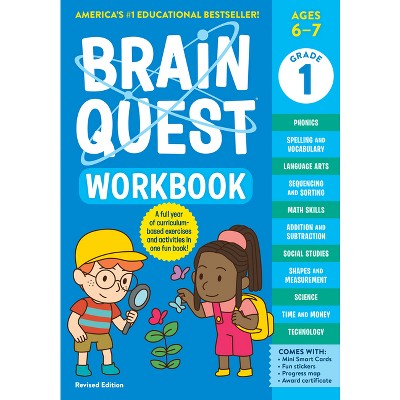
$7.91
MSRP $12.99
Save $5 when you spend $20 on select books
4.7 out of 5 stars with 35 ratings
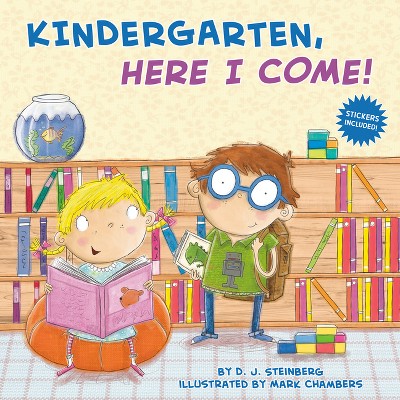
$5.25
Save $5 when you spend $20 on select books
4.8 out of 5 stars with 74 ratings
Trending Non-Fiction

$19.31
was $20.98 New lower price
4 out of 5 stars with 62 ratings

$4.59
MSRP $7.99
Save $5 when you spend $20 on select books
4.8 out of 5 stars with 122 ratings

$6.20
MSRP $10.95
Save $5 when you spend $20 on select books
4.8 out of 5 stars with 33 ratings

$7.09
MSRP $9.99
Save $5 when you spend $20 on select books
4.9 out of 5 stars with 46 ratings
